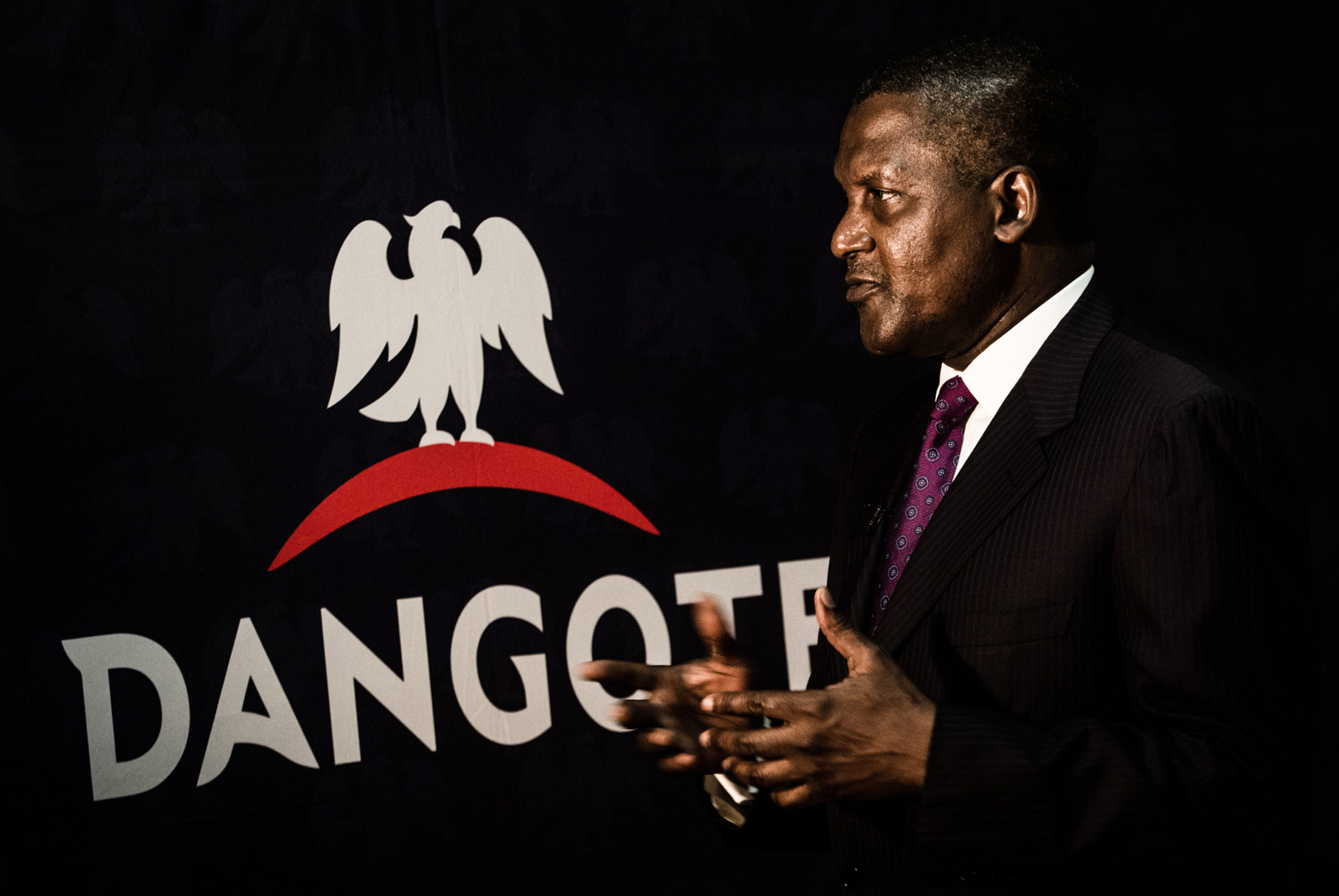- Dangote to Sell N200b shares in Block Divestment
Dangote Industries Limited (DIL), the majority core investor in Dangote Cement Plc, plans to sell shares valued at more than N200 billion in a partial divestment that will widen the float for Dangote Cement.
DIL is owned by Africa’s richest man, Alhaji Aliko Dangote, with over 90 per cent majority equity in Dangote Cement, Nigeria’s most capitalised company.
A document obtained showed that Dangote Cement has secured regulatory approval for block divestment of 852.03 million ordinary shares of 50 kobo each. Dangote Cement opened yesterday at N235 per share at the Nigerian Stock Exchange (NSE). The block divestment represents 5.0 per cent of the issued share capital of Dangote Cement.
Dangote Cement’s issued share capital consists of 17.041 billion ordinary shares, which were valued at N4.004 trillion at the opening of the stock market yesterday. Dangote Cement accounts for more than 30 per cent of the total market capitalisation of quoted equities.
A source in the know said the DIL plans to undertake the block sale in tranches and the recent sale of 416 million ordinary shares was the first tranche of the N200 billion divestment. About 2.44 per cent equity stake in Dangote Cement was swapped under pre-arranged transactions earlier this month. A report on the transactions indicated that six deals were struck for the transfer of 416 million ordinary shares of 50 kobo each at a below-the-market price of N210.
The deals, according to the report, were done through the off-market, negotiated cross deals window of the Exchange and as such was not subjected to the dynamics of price discovery for the particular period. Off-market trade implied that the deal was sealed outside the floor of the NSE.
The negotiated cross deal platform of the Exchange is a special-purpose trading platform that is meant for voluminous transaction. By the cross deal, it implies that the buyer and the seller had been prearranged and the transfer at the stock market was a mere perfection of the agreement between the two. The negotiated cross deal allows the parties to the deal to close the deal at reduced cost.
While the details of the new major investor are still unknown, Meristem Stockbrokers Ltd sold the shares to Stanbic IBTC Stockbrokers Ltd, both stockbroking firms obviously acting on behalf of third party investors.
Stanbic IBTC Stockbrokers is a subsidiary of Stanbic IBTC Holdings, a member of South Africa’s Standard Bank Group. Stanbic IBTC is known to act on behalf of foreign portfolio investors.
South African government had in June 2013 bought into Dangote Cement. The South Africa’s government, through its wholly owned investment company, Public Investment Corporation of South Africa (PIC), had acquired 1.5 per cent equity stake in the Nigerian cement group to emerge the second largest equity investor.
A reliable source said the block divestment might not be unconnected with a regulatory requirement to free more shares of the cement company for ownership and trading by minority investors.
All companies listed on the NSE are required to have a certain minimum percentage of their shares in the hand of the general investing public, otherwise known as free float or public float.
Free float refers to the number of shares of a quoted company held by ordinary shareholders other than those directly or indirectly held by its parent, subsidiary or associate companies or any subsidiaries or associates of its parent company; its directors who are holding office as directors of the entity and their close family members and any single individual or institutional shareholder holding a statutorily significant stake, which is 5.0 per cent and above in Nigeria.
Thus, free float’s shares do not include shares held directly or indirectly by any officer, director, controlling shareholder or other concentrated, affiliated or family holdings.
Stock markets maintain minimum public float to prevent undue concentration of securities in the hands of the core investors and related interests, a situation that can make the stock to be susceptible to price manipulation. Besides, it provides the general investing public with opportunity to reasonably partake in the wealth creation by private enterprises.
Companies listed on the Exchange are required to maintain a minimum free float for the set standards under which they are listed in order to ensure that there is an orderly and liquid market in their securities. The free float requirement for companies on the premium and main boards is 20 per cent while companies on the third tier board, otherwise known as Alternative Securities Market (ASEM) are required to have 15 per cent free float. Dangote Cement is listed on the premium board of the Exchange. Meanwhile, the NSE allows a minimum free float valued at N40 billion for large-cap companies on the premium board.
Failure by any company under free float deficiency to restructure its share capital at the expiration of the deadline usually issued by the Exchange or secure extension of the deadline may lead to delisting of its shares from the NSE.


 Forex3 weeks ago
Forex3 weeks ago
 Naira3 weeks ago
Naira3 weeks ago
 Billionaire Watch2 weeks ago
Billionaire Watch2 weeks ago


 Naira3 weeks ago
Naira3 weeks ago




 Naira2 weeks ago
Naira2 weeks ago




 Naira1 week ago
Naira1 week ago




 Naira4 weeks ago
Naira4 weeks ago
 Banking Sector4 weeks ago
Banking Sector4 weeks ago























